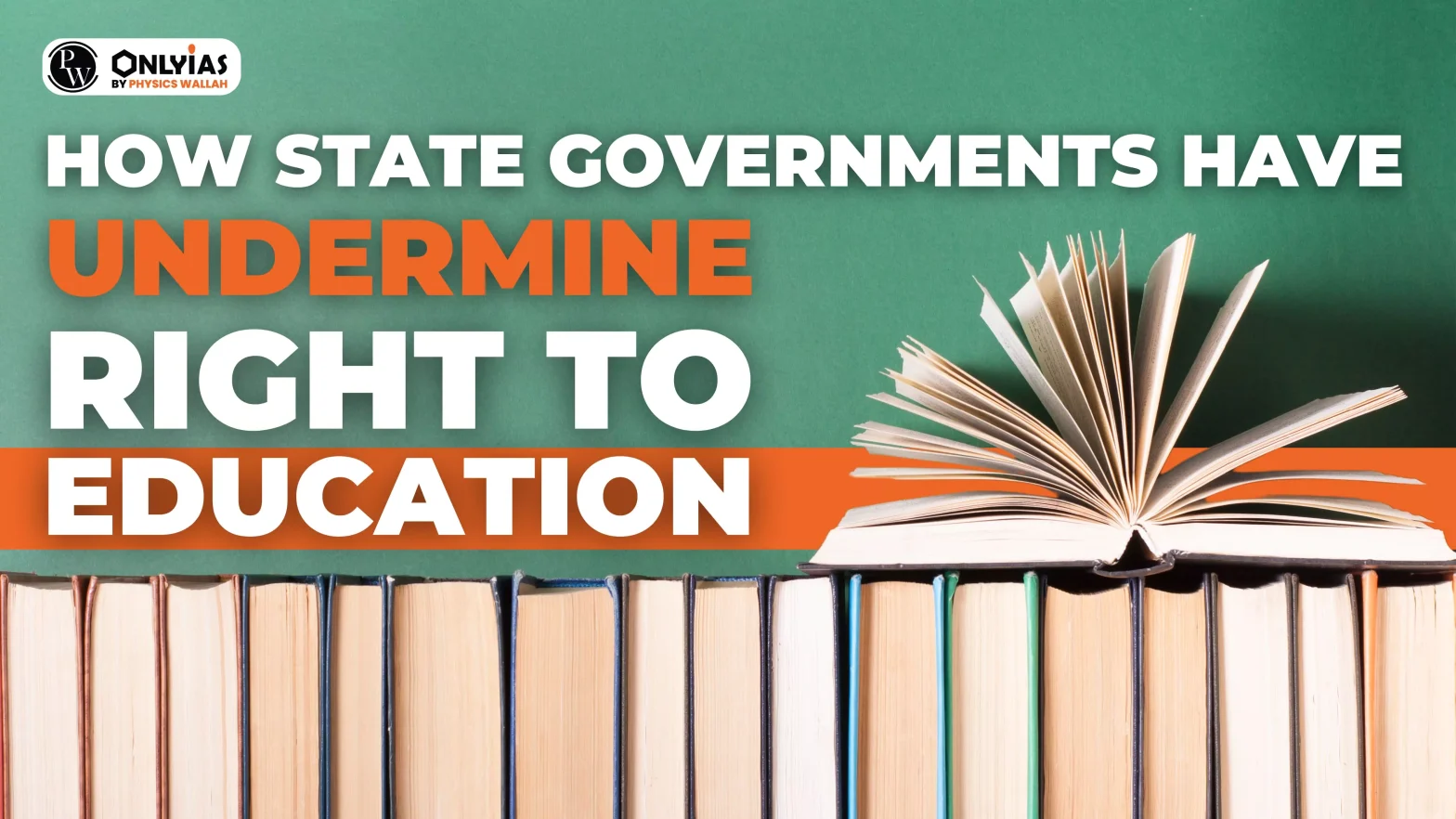Recently, the Bombay High Court set aside the Maharashtra government’s order, which said that private schools need not implement this provision if there is a government school within a distance of 1 kilometre. A similar rule by the Punjab government mandated that a parent can only claim an EWS quota in private schools when their child couldn’t secure admission in government schools. Such attempts by state governments undermine the philosophy behind the implementation of RTE and try to bypass the 25% reservation of seats in private schools for children from economically weaker sections.
Basics of Right to Education
The Right to Education (RTE) in India is a fundamental right under Article 21A of the Indian Constitution, which ensures free and compulsory education for all children between the ages of 6 and 14.
This right was established through the 86th Constitutional Amendment Act in 2002 and was implemented through the Right of Children to Free and Compulsory Education Act, 2009, commonly known as the RTE Act.
Key provision of the Right to Education (RTE) in brief:
- Free and Compulsory Education: Education is free and compulsory for children aged 6-14 years.
- 25% Reservation: Private schools must reserve 25% of seats for children from economically weaker sections.
- No Detention Policy: Students up to Class 8 cannot be held back or failed, promoting continuous assessment and a supportive learning environment instead of yearly exams.
- Age-appropriate admissions: Children who have never been to school or have dropped out to be enrolled in a class corresponding to their age, ensuring timely education. Special sessions are to be provided to help students.
- Child-centric Learning: Education must be child-friendly and focused on the child’s overall development.
- School Standards: Schools must meet certain infrastructure and teacher quality standards.
- School Management Committees (SMCs): SMCs should consist of elected representatives, teachers, parents of children studying in the school (with 50% being women), and local authority members to oversee the functioning of the school.
|
The idea of giving every child the right to be at a school has waited for a long time. Gopal Krishna Gokhale tried to seek approval for it in the Imperial Legislative Assembly in 1911. Thus, when the RTE was finally promulgated, it was expected to serve as a conscience-raiser. However, considering the lacunas in its implementation, one can say that the act is neither appreciated nor understood.
Enroll now for UPSC Online Classes
Reasons for undermining the Right to Education (RTE)
- Right to Education (RTE) is not seen as an absolute right.
- Resistance from Private Schools: Private schools saw RTE as an intrusion in their authority and functioning.
- Government Actions: Nexus between private schools and politicians tried to bypass the provision through legal loopholes. E.g., orders by Maharashtra and Punjab governments.
- Expenditure on state governments: According to the Maharashtra government, the order was to avoid the duplication of resource expenditure. The government has to reimburse the private school for the cost of enrolling the poor students and also has to maintain the private schools.
- Segregation within Schools: Some private schools created separate sections or sessions for EWS children rather than allowing them to study with others.
- Inadequate teacher training: Only a well-trained and qualified teacher can handle the class with students from diverse backgrounds more effectively.
Way Forwards
- Implementation of J. S. Verma Commission Recommendations: Revamping teacher training to handle diverse classrooms effectively.
- Increased Awareness: Educating society about the importance of RTE to ensure broader acceptance and better implementation.
Check Out UPSC NCERT Textbooks From PW Store
Conclusion
According to modern pedogogic theory, mixing children from different backgrounds enriches the learning. It has the potential to build long-term bridges in a stratified social order. Thus, the Right to Education Act has to be implemented in letter and spirit.
![]() 19 Aug 2024
19 Aug 2024

